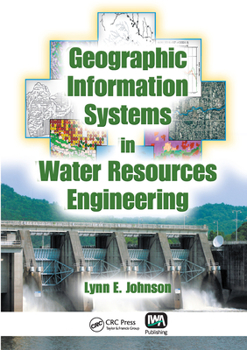Geographic Information Systems in Water Resources Engineering
State-of-the-art GIS spatial data management and analysis tools are revolutionizing the field of water resource engineering. Familiarity with these technologies is now a prerequisite for success in engineers' and planners' efforts to create a reliable infrastructure.
GIS in Water Resource Engineering presents a review of the concepts and applications of GIS in the various sub-fields of water resource engineering. After a summary review of analyses and database functions, the book addresses concepts and applications in the following areas:
Surface Water Hydrology Groundwater Hydrology Water Supply and Irrigation systems Wastewater and Stormwater Systems Floodplain Management Water Quality Water Resource Monitoring and Forecasting River Basin Planning and ManagementThe book develops a general understanding of the nature of GIS and how it is used to create and analyze geographic data. The author first introduces primary field data collection methods and describes procedures for interpretation and analysis. The second portion of the book focuses on the linkage of GIS data with water resource analysis and management models. Applications are presented with descriptions of GIS database development, analysis background theory, and model integration with GIS.
The profound impact of GIS systems on water resources engineering continues to grow. GIS in Water Resource Engineering arms engineers and planners with an arsenal of tools to assist in the creation of a reliable, environmentally sensitive, infrastructure.
Related Subjects
Engineering Science Science & Math Science & Scientists Science & Technology Technology




